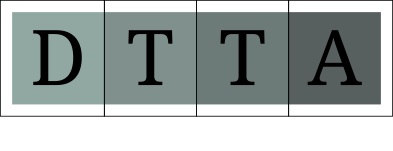

Redlands Estate Planning Lawyer
Serving the Needs of Individuals & Families in the Greater Inland Empire Area
At Dolen, Tucker, Tierney & Abraham, APLC, our Redlands estate planning lawyer brings experienced and caring representation in estate planning, trust administration, and probate services. We believe strongly in the value and benefit of protecting your family and assets, ensuring that your wishes are carried out, and ensuring other personal matters are secured for those you leave behind at a time when they will need it the most.
Estate planning, trust administration, and probate services are areas that are intensely personal to you and your family; everyone’s needs are different. Our job is to learn your unique situation, family dynamics, and the motivations that will inform your process. We are committed to helping you with these matters so that you will walk away with confidence and peace of mind.
Request a free initial consultation about your estate needs by sending us an email online or calling Dolen, Tucker, Tierney & Abraham, APLC at (909) 473-4948.
WE'RE HERE TO HELP YOU MOVE FORWARD
TYPES OF CASES WE HANDLE:
Estate Planning in California
Many people procrastinate or even avoid the process of estate planning. This is understandable for those who are uncomfortable with the idea of planning for what will occur when they are no longer here. However, estate planning is a valuable way to ensure that your wishes are carried out and that certain matters are taken care of by and for the people and organizations in your life when you are no longer able to express your intentions.
Estate planning tools consist of the following types of legal instruments.
Wills
Wills are legal documents that let you decide who inherits your property when you die. Wills can also list who will care for your minor children (guardianships) as well. With a will, you can additionally pick who will be in charge of collecting and distributing your property (your “Executor”). A will does not require you to change title to any assets while you are alive; it only takes effect after you die.
Your will must first be filed by the Executor with the probate court after your death, and your Executor must be appointed by the court. A judge will then supervise how your debts and taxes are paid and how and to whom your property is distributed.
Passing away without a will is called “intestacy.” When this happens, your assets in your name alone will be divided up according to state law by the probate court with no instructions from you. The court will appoint an Administrator (usually a relative) to collect and distribute your assets to your spouse, domestic partner, children, or other relatives.
Revocable Trusts
A trust requires you as the “Settlor” to transfer money and your assets into the name or title of the trust for your benefit or for the benefit of others. An attorney can prepare a revocable trust which means that it can be changed or terminated by you whenever necessary. You usually are named as the first “Trustee” of the trust and will control your assets during your lifetime. Unlike a will (which takes effect after your death), a revocable trust usually goes into effect once it is created. A successor trustee is named who manages your assets when you can no longer handle your affairs or upon your death. A trust is not usually supervised by a court and is considered more confidential. Revocable trusts are usually used to manage your finances during your life, distribute your assets on your death, and to avoid probate.
Both revocable and irrevocable trusts can be created for various purposes. These types of trusts can include charitable trusts, asset protection trusts, special needs trusts, life insurance trusts, and more. Our Redlands estate planning lawyer can educate you on the various trusts available that will suit your individual needs and goals.
Advance Health Care Directives
These Directives allow you to decide how you would like your end-of-life health care decisions to be made and by whom. They tell doctors your preferences, including your religious beliefs, and help direct medical treatment when you can’t make your own decisions. They are not supervised by the court.
Powers of Attorney
Powers of Attorney for Financial Management name someone to help with your financial matters if you are unable to do so. Only certain assets require a Power of Attorney, such as insurance agreements, public benefits, automobiles, or assets that are not in your trust. Powers of Attorney are not supervised by the court; they are an agreement between you and the person you select as your agent to wisely manage your funds. You can change a Power of Attorney during your lifetime. The authority you give to your agent under a Power of Attorney ends upon your death.
-
"Very Friendly and Professional"Very friendly and professional, quick to respond to messages and phone calls, and very thorough.- Aaron P.
-
"Ready to Jump Into Action"That's what I call amazing service!- Lisa M.
-
"I Am Really Satisfied"They were always there to explain the process and answer every question I had.- Jordy C.
-
"Great Practice, Great People."Great Practice, Great People.- Jack D.
-
"The Experience Was Excellent"The experience we had in this office was excellent.- Former Client
-
"Fast, Friendly, and Informative."They kept me updated through every single step of the process.- Luis A.
-
"Great Team of Professionals to Work With"Really helped us out when we needed it the most.- Kenneth E.
-
"Best Attorneys in Town!"They made every step very easy throughout the whole process.- Miriam N.

Conservatorship of the Person or Estate
If you are unable to make medical or financial decisions and have not prepared any of the documents listed above, it may be necessary for someone to file a petition with the court to be appointed as your “Conservator.” This person will be responsible for handling your personal needs, such as where you live or will make medical decisions for you or handle your estate (pay your bills, insurance, mortgage, file your tax returns), or for both your “person” and “estate.” The court supervises conservatorships once they have been established and a Conservator must file regular reports and accounts with the court.
Probate & Trust Administration
At Dolen, Tucker, Tierney & Abraham, APLC, we can provide the guidance and representation you need when a family member dies and the estate must go through probate. In probate, the Executor of the will or an appointed Administrator will be in charge of the court case that will settle the estate. This person will be responsible for the identification of the deceased person’s assets, paying any debts and expenses, and distributing what remains to the heirs and beneficiaries.
Trust administration involves managing the termination of a trust after the creator of the trust has passed away. This is generally not supervised by a court. The trust administrator is in charge of paying all expenses or taxes, terminating the trust, and distributing the remaining funds to the beneficiaries named in the trust.
Turn to Our Experienced Redlands Estate Planning Attorney
For some clients, an “estate plan” might mean a trust, will, health care directive, and Power of Attorney for Financial Management. For other clients, it may be just a few of these things. We are here to help you understand the difference between these estate planning tools as well as help you make the best choices in creating your estate plan. We can also provide the knowledge and guidance you need to administer a trust or to settle a family member’s estate through the court-supervised process of probate.
Contact us at (909) 473-4948 to book your free initial consultation about your estate planning needs today.
-
Over 100 Years of Experience
-
Our Redlands Roots Go Deep
-
With You At Every Step
-
You'll Speak Directly With An Attorney







